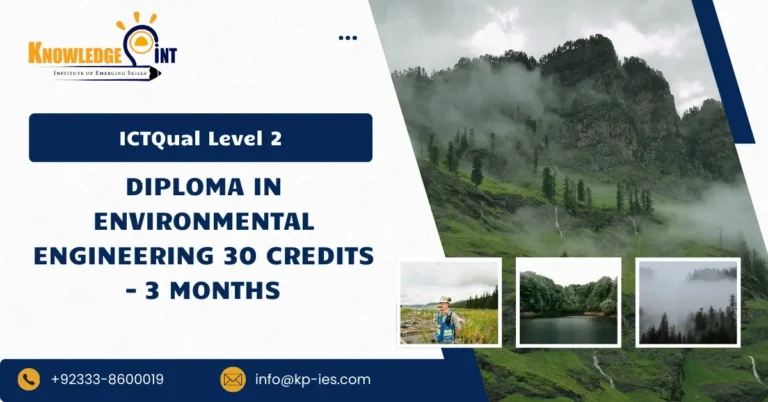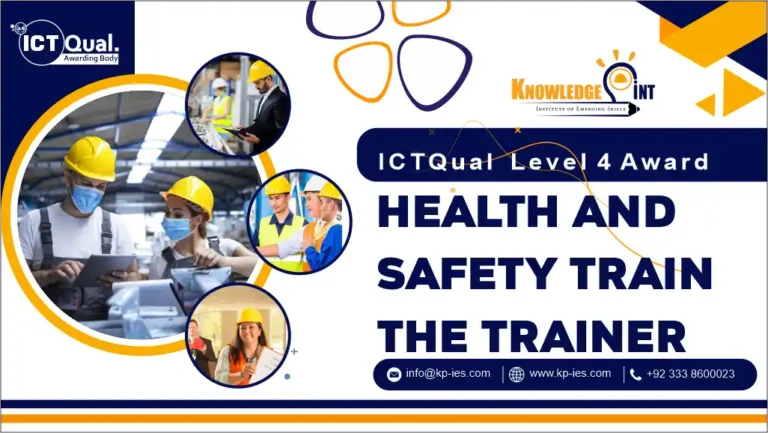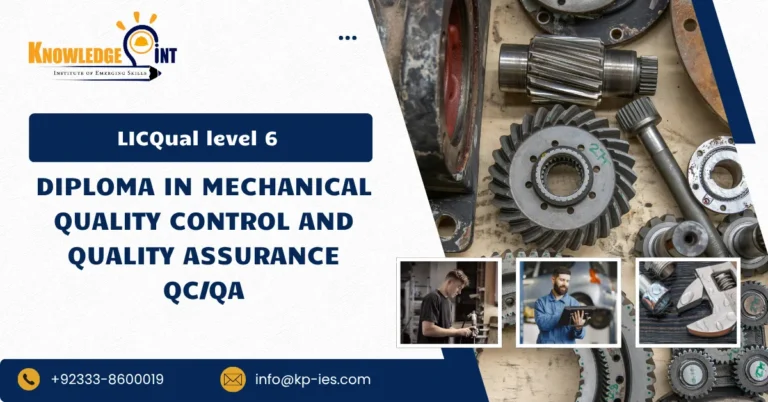In an era where environmental challenges are increasingly complex and urgent, the need for advanced expertise in environmental management has never been greater. The LicQual Level 7 Diploma in Environmental Management is designed for seasoned professionals and ambitious individuals looking to deepen their knowledge and take their careers to the next level.
The LicQual Level 7 Diploma in Environmental Management is a high-level qualification tailored for individuals aiming to become leaders in the field of environmental management. This program is designed to enhance your strategic thinking, leadership skills, and technical knowledge, enabling you to tackle the most pressing environmental issues facing our world today.
The LicQual Level 7 Diploma in Environmental Management is more than just a qualification; it is a transformative experience that empowers you to become a leader in environmental management. Whether you are looking to advance in your current career or transition into a new role, this diploma provides the knowledge, skills, and credentials you need to make a significant impact on the world’s environmental challenges.
Course Overview
The LicQual Level 7 Diploma in Environmental Management consists of 11 mandatory units which are as follows.
The learning outcomes of LicQual Level 7 Diploma in Environmental Management include:
Sustainability and Environmental Systems
- Understanding Sustainability Principles: Grasp the core principles of sustainability and how they apply to environmental systems.
- Systems Thinking: Develop skills in systems thinking to analyze and manage complex environmental systems.
- Sustainable Practices: Learn to design and implement sustainable practices in various sectors, including energy, water, and waste management.
- Integrated Approaches: Understand the importance of integrating economic, social, and environmental considerations in sustainability planning.
Environmental Management – Decision Making
- Decision-Making Frameworks: Learn frameworks and methodologies for effective decision-making in environmental management.
- Risk Assessment: Develop skills in assessing and managing environmental risks.
- Strategic Planning: Understand strategic planning processes to address environmental challenges.
- Stakeholder Engagement: Learn techniques for engaging stakeholders in decision-making processes.
Global Environmental Issues
- Identification of Key Issues: Identify and analyze major global environmental issues such as climate change, biodiversity loss, and pollution.
- Impact Analysis: Evaluate the environmental, economic, and social impacts of global environmental problems.
- Global Governance: Understand the roles of international agreements and organizations in addressing global environmental issues.
- Mitigation Strategies: Develop strategies for mitigating and adapting to global environmental challenges.
Environmental Auditing
- Audit Principles: Understand the principles and practices of environmental auditing.
- Audit Process: Learn the steps involved in conducting an environmental audit, including planning, data collection, and reporting.
- Compliance Evaluation: Develop skills in evaluating compliance with environmental regulations and standards.
- Continuous Improvement: Understand the role of environmental auditing in promoting continuous improvement in environmental performance.
Environmental Policy
- Policy Development: Learn the process of developing environmental policies, including problem identification, policy design, and implementation.
- Policy Instruments: Understand various instruments of environmental policy, such as regulations, market-based approaches, and voluntary measures.
- Policy Evaluation: Develop skills in evaluating the effectiveness of environmental policies.
- Stakeholder Analysis: Understand the importance of engaging stakeholders in the policy-making process.
Environmental Policy and Governance
- Governance Structures: Understand the structures and processes of environmental governance at local, national, and international levels.
- Policy Implementation: Learn how environmental policies are implemented and enforced.
- Institutional Roles: Understand the roles of various institutions and organizations in environmental governance.
- Governance Challenges: Analyze the challenges and opportunities in environmental governance.
Environmental Law
- Legal Frameworks: Gain a comprehensive understanding of the origins, development, and principles of environmental law.
- Legal Instruments: Learn about key legal instruments, including statutes, regulations, treaties, and case law.
- Regulatory Agencies: Understand the roles and responsibilities of regulatory agencies in enforcing environmental laws.
- Case Studies: Analyze landmark environmental cases to understand their implications and the legal precedents they set.
Managing Changes in Environment
- Change Management: Learn the principles and practices of managing environmental changes.
- Adaptation Strategies: Develop strategies for adapting to environmental changes, including climate change and resource depletion.
- Impact Mitigation: Understand methods for mitigating the impacts of environmental changes.
- Resilience Building: Learn how to build resilience in communities and ecosystems facing environmental changes.
Environmental Science Challenges
- Current Challenges: Identify and analyze current challenges in environmental science.
- Innovative Solutions: Explore innovative solutions and technologies to address environmental challenges.
- Interdisciplinary Approaches: Understand the importance of interdisciplinary approaches in solving environmental problems.
- Research Skills: Develop advanced research skills to investigate and address environmental science challenges.
Environmental Perception and Public Awareness
- Perception Analysis: Understand how environmental issues are perceived by different stakeholders.
- Communication Strategies: Learn strategies for effectively communicating environmental information to the public.
- Behavioral Change: Explore methods for promoting behavioral change towards more sustainable practices.
- Public Engagement: Develop skills in engaging the public in environmental initiatives and decision-making processes.
Environmental Impact Assessment
- EIA Principles: Understand the principles and objectives of Environmental Impact Assessment (EIA).
- EIA Process: Learn the steps involved in conducting an EIA, including scoping, impact analysis, and reporting.
- Mitigation Measures: Develop skills in identifying and implementing mitigation measures to reduce environmental impacts.
- EIA Regulations: Understand the regulatory frameworks governing EIA and their application in different contexts.
Course Benefits of the LicQual Level 7 Diploma in Environmental Management :
1. Specialized Expertise
- Auditing Proficiency: Gain specialized knowledge and skills in auditing energy management systems according to the ISO 50001:2018 standard.
- Industry Recognition: Earn a globally recognized qualification that demonstrates your proficiency as an energy management systems auditor.
2. Career Advancement
- Expanded Career Opportunities: Qualify for roles such as Lead Energy Auditor, Energy Management Consultant, or Compliance Officer.
- Higher Earning Potential: Enhance your value to employers and increase your earning potential with specialized expertise in energy management auditing.
3. Industry-Relevant Skills
- Practical Application: Acquire practical skills and techniques for planning, conducting, and documenting energy management system audits.
- Effective Communication: Develop communication skills to interact with auditees, audit teams, and stakeholders effectively.
4. Contribution to Sustainability
- Promotion of Energy Efficiency: Play a key role in promoting energy efficiency and reducing environmental impact within organizations.
- Support for Sustainable Practices: Assist organizations in implementing and maintaining energy management systems that support sustainability goals.
5. Quality Assurance
- Compliance Assurance: Help organizations achieve compliance with ISO 50001:2018 requirements and other relevant regulatory standards.
- Risk Mitigation: Identify areas of non-conformance and provide recommendations for corrective actions to mitigate risks.
6. Continuous Professional Development
- Lifelong Learning: Engage in continuous professional development by staying updated with the latest developments and trends in energy management auditing.
- Networking Opportunities: Connect with industry professionals, auditors, and experts, expanding your professional network and opportunities.
7. Organizational Benefits
- Improved Performance: Contribute to the improvement of organizational energy performance through effective auditing and recommendations for continuous improvement.
- Enhanced Reputation: Help organizations build a positive reputation for their commitment to energy management and sustainability practices.
8. Personal Growth
- Leadership Development: Develop leadership skills to effectively manage audit teams, delegate tasks, and ensure audit objectives are met.
- Confidence Boost: Gain confidence in your abilities as an energy management systems auditor through practical training and hands-on experience.
The LicQual Level 7 Diploma in Environmental Management is a pinnacle qualification for those aspiring to lead in the environmental sector. Graduates of this program are equipped with advanced knowledge and skills, opening a wide range of opportunities for further education and career advancement. Here are some potential future progression pathways:
Further Education
- Doctoral Degrees (PhD):
- PhD in Environmental Management: Conduct advanced research and contribute to academic knowledge in the field. A PhD prepares you for roles in academia, high-level consultancy, and research institutions.
- PhD in Environmental Science: Focus on scientific research aimed at solving complex environmental problems. This path is suitable for careers in academia, research, or policy advisory roles.
- PhD in Sustainability Studies: Explore interdisciplinary research on sustainability issues, preparing for leadership roles in sustainability initiatives across various sectors.
- Postgraduate Certificates and Diplomas:
- Postgraduate Certificate in Climate Change Management: Specialize in climate change adaptation and mitigation strategies.
- Postgraduate Diploma in Renewable Energy: Focus on the development and implementation of renewable energy solutions.
- Postgraduate Certificate in Environmental Policy and Law: Gain advanced expertise in the intersection of environmental policy, governance, and law.
- Professional Certifications:
- Certified Environmental Auditor (CEA): Enhance your credentials in environmental auditing, focusing on compliance and performance improvement.
- Certified Sustainability Professional (CSP): Specialize in sustainability practices within organizations, enhancing your ability to lead corporate sustainability initiatives.
- Project Management Professional (PMP): Obtain project management skills to lead large-scale environmental projects effectively.
Career Advancement
- Senior and Executive Roles:
- Chief Sustainability Officer (CSO): Lead sustainability strategy and initiatives within large organizations, driving innovation and ensuring compliance with environmental standards.
- Environmental Director: Oversee environmental strategy and operations, ensuring that organizational practices align with sustainability goals.
- Senior Environmental Consultant: Provide high-level consultancy services on complex environmental issues, helping organizations develop and implement effective sustainability strategies.
- Policy Advisor/Analyst: Work with government bodies, international organizations, or NGOs to shape and influence environmental policies and regulations at the highest levels.
- Corporate Environmental Manager: Oversee environmental management systems within large organizations, ensuring compliance and promoting sustainability.
- Industry Sectors:
- Government and Public Sector: Senior roles in policy development, regulatory compliance, and environmental program management.
- Non-Governmental Organizations (NGOs): Leadership positions in advocacy, research, and environmental project management.
- Private Sector: Executive roles in industries such as manufacturing, construction, energy, and consultancy firms, focusing on environmental management and sustainability.
- Academia and Research: Engage in teaching, research, and academic leadership roles, contributing to the development of new knowledge and practices in environmental management.
Continuous Professional Development (CPD)
- Advanced Workshops and Seminars: Participate in industry-leading workshops and seminars to stay updated with the latest trends and advancements in environmental management.
- Professional Conferences and Networking Events: Attend conferences and networking events to connect with industry leaders and stay informed about new developments and opportunities in the field.
- Online Courses and Webinars: Engage in advanced online learning opportunities to continually enhance your knowledge and skills.
The LicQual Level 7 Diploma in Environmental Management provides a robust foundation for those aiming to reach the pinnacle of their careers in environmental management. With numerous opportunities for further education, professional certifications, and career advancement, graduates are well-equipped to take on senior and executive roles in various sectors. Whether you choose to continue your studies or pursue advanced career opportunities, this diploma positions you to make a significant impact in the field of environmental management and sustainability. The knowledge, skills, and network you gain from this program will enable you to lead, innovate, and drive positive change in the global environmental landscape.







